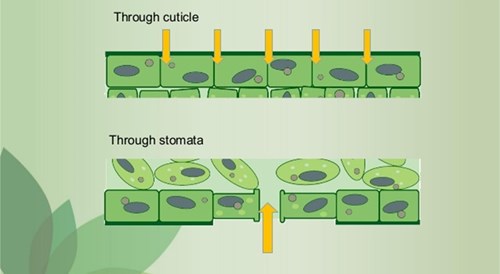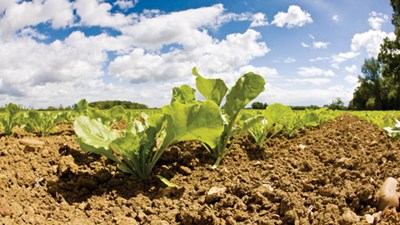There are a range of different bio-stimulants available for use on sugar beet. These are based on different product-types such as plant-based amino acids, phosphites, chitin/chitosan derivatives, seaweed extracts and soil-applied plant growth promoting bacteria (PGPB).
BBRO has a trials programme that is assessing the effect of bio-stimulants on sugar beet. One focus areas is the use of foliar-applied products, applied at an early crop growth stage (from the 4-6-leaf stage) to understand how they may encourage establishment and faster canopy development. A second focus area is the use of soil-applied growth promoting bacteria.

Foliar and soil application of bio-stimulants
Our observations to date are that we have measured occasional responses to where bio-stimulants have been applied but the results are often inconsistent across different sites and seasons. Improvements in canopy development have been demonstrated but these are not in all cases, and not associated with statistically significant improvements in root yield and sugar content.
The BBRO bio-stimulant programme is on-going and focused on identifying which products and which crop situations are likely to give growers the greatest likelihood of a positive response.
More details on the different types of bio-stimulants, their function and efficacy can be found in a useful AHDB Review document (A review of the function, efficacy and value of bio-stimulants available for UK cereals and oilseed) This can be found on the AHDB website.




